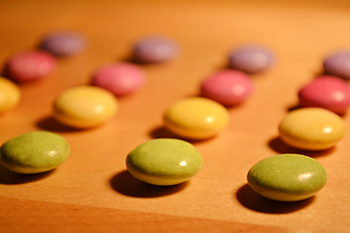
Another group of diseases that we cannot attribute to children is psychiatric diseases. However, it can also be evaluated with the increasing need for specialists in the field of Child Adolescent Psychiatry and Diseases, which are increasing day by day that children also have psychiatric problems and need treatment.
Children who are orderly, controlling, do everything in order, have strict rules, and act like they are older than their age can be happy for families. There were some ritualistic habits in childhood, such as preparing for bedtime, preparing for school, preparing for study, preparing for dinner, etc. These can be considered as normal to a certain extent. However, when there are disruptions in these routines and changes in their routine, if the child experiences things like tension, anxiety, restlessness, and irritability, this should be taken into account.

Most of us have daily routines, that is, sequential actions. (door, cooker control, door locking controls, checking the inside of the bag several times, etc.) before leaving the house. This is a normal situation that does not disrupt functionality, that is, the flow of life. When these routines start to be done in the same order and when they are not, intense anxiety, the thought that something bad will happen, being late to the destination, and increase in check-ups can be considered as obsessive behavior.
Negative thoughts or fantasies that come to mind that cannot be removed from the mind are called obsessive thoughts (something bad will happen to my parents, my mother will forget me at school, I am a bad child, etc.).
Repetitive obsessive behaviors to get rid of these thoughts are called compulsions. (frequent hand washing, asking the same question over and over, touching a certain place by counting, frequent checking, etc.). These are not Tics or Repetitive Behaviors. They are behaviors that cause anxiety, fear and distress when not done.
”A 9-year-old boy dreams of his 5-month-old sister falling out of bed all the time. For this reason, he wakes up and constantly checks his brother. Over time, he calls the house or wants his mother to come to school with his brother, worried that something will happen to his brother even while he is at school.” This situation has now started to negatively affect the child’s daily life. Functions such as sleep, nutrition, school attendance, study, and spending time with friends are significantly impaired.
”The 7-year-old girl frequently asks her mother affirmative questions such as “Isn’t I going to die if I can’t swallow it,” with the worry that something will get stuck in her throat and she won’t be able to breathe. He has difficulties in breathing.”This situation has significant problems in the family and school, and even negatively affects the whole life of the child.
Many examples of such obsessive thoughts and behaviors can be given. In this case, it is important to evaluate a good disease history, family history, and family attitudes towards the situation. Because OCD is a long-term and insidious onset disorder, especially in children. Obsessive, controlling, anxious family attitudes can be triggers. In addition, it should be kept in mind that there may be other accompanying psychiatric problems such as Attention Deficit Hyperactivity Disorder, Tic Disorders, and Behavioral Disorders.
OCD treatment is evaluated and treated as in adults. If early-onset obsessive conditions are not treated, they can lead to significant problems in adulthood. First of all, the child and family should be informed about the disease, the treatment will be long-term, there may be exacerbations in the symptoms from time to time, and the importance of family attitudes should be explained. The details of the treatment should be discussed with drug therapy and behavioral therapy methods.
The solution is collaborative. The importance of cooperation between physicians, children, family and close circle members should be discussed.

